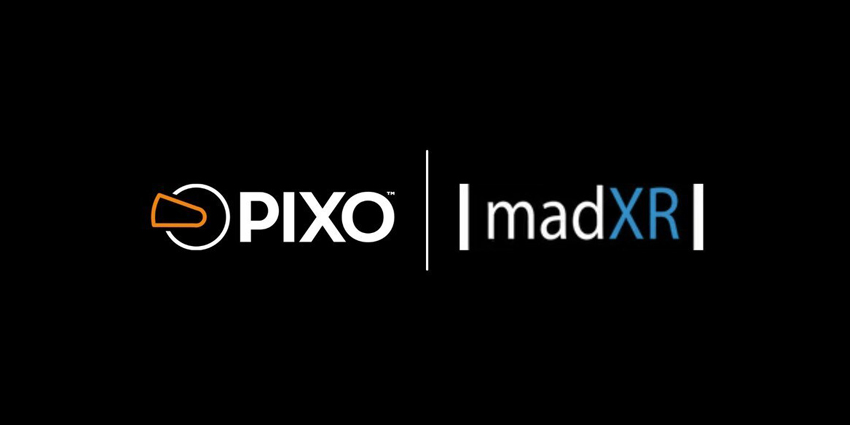Even as the technology for the metaverse is being built, businesses are gearing up for a radical transformation. Cryptocurrency company and market insights provider, Grayscale, recently pegged the metaverse’s revenue generation potential as $1 trillion.
According to its reports, revenues from virtual gaming worlds could increase from $180 billion in 2020 to $400 billion by 2025 – before eventually gaining from the metaverse’s large-scale interoperability within the next decade.
This massive business opportunity comes from a variety of sources, from advertising in the metaverse to e-commerce, virtual events, and new hardware.
Yet, when Mark Zuckerberg debuted the company’s metaverse simulation at Connect, ads and display hoardings were conspicuously missing.
While the typical social media experience is riddled with ads and sponsored content, a similar strategy for the metaverse is yet to take form.
The next few years will be crucial for small and large businesses as well as investors as the market implications of the metaverse become clearer. For those who want an early start, here is a brief breakdown.
What Does the Metaverse Mean for Businesses?
The metaverse can be described as a three-dimensional virtual space where users can come together via avatars that resemble them and mimic their movements so that they can interact with each other and the surroundings, which also replicates the physical world with select modifications.
The metaverse would be the next iteration of the internet and the social media world, with a few points of difference:
- Users can log in via virtual reality (VR); this opens up new brand engagement possibilities, from trying out apparel to exploring a piece of real estate.
- Users can be situated anywhere in the world, removing any geographic barriers in e-commerce.
- Users will be equipped with a digital wallet in the metaverse, which makes purchase transactions more seamless.
- Users will be able to teleport freely around the metaverse so that they can participate in groups and join (and pay for) events.
- Users will engage in a new kind of storytelling experience aided by 360° videos and 3D modelling, which means advertising must transform.
For one set of businesses, the metaverse will be another channel in their marketing mix and a prominent one at that. Omnichannel strategies for marketing, sales, and CX must evolve to include virtual reality.
The second set of businesses will be metaverse native, just like we have digital native companies today without any brick-and-mortar presence.
Risks of Doing Business in the Metaverse
Of course, doing business in the metaverse won’t be without its pitfalls.
Venturing into new business segments or investing in additional channels always has a risk component, and this will be particularly true for the metaverse in its early years up until 2035.
Unpredictable user engagement
While the metaverse may support 2D apps and desktop-based engagement, it will primarily exist in VR.
However, VR headset shipments continue to be relatively low when compared to the total world population and, more specifically, the number of social media users.
Different users may react differently to VR, depending on their personal preferences and health conditions.
Businesses might struggle to achieve universal reach.
Shifting value of crypto
A lot of the business transactions taking place in the metaverse will leverage blockchain, either through cryptocurrency or non-fungible tokens (NFTs).
However, crypto value is known to vary widely from day to day, which could cause a degree of economic instability in the metaverse. Also, major investments through NFTs may not be as reliable as real-world trades.
For instance, the buyer of an NFT may not be able to legally edit the work, despite having paid for it. This could deter a certain segment of customers.
Portability to the physical world
This risk applies to metaverse native businesses. They might find themselves restricted to a small fraction of the global population, and VR infrastructure may be difficult to translate into other digital formats or brick and mortar.
To take a simplistic scenario, we could be looking at something like the dot-com bubble of the 1990s if metaverse native companies struggle to be viable in the long term.
Decentralised therefore deregulated
Most commentators, analysts, and developers admit that a true metaverse must mandatorily be decentralised. It will be owned by no one and there will be complete transparency and democratisation. But this also means that the metaverse will be hard to regulate.
Even if regulatory bodies come out with sufficiently robust policies, they would be difficult to enforce without trying to bypass its decentralised architecture.
Without regulation, businesses – especially SMBs – would be at risk.
Will the Metaverse Pose a Threat to Traditional Businesses?
Any new channel or economy will inevitably create competition, and the metaverse is no different. Companies that manage to make early in-roads into the metaverse stand to gain a significant advantage.
This could tilt the scales disproportionately towards large businesses, as they are the ones with the greatest risk appetite.
Already, companies like Ralph Lauren and Nike, are working on VR branding projects that fit seamlessly into the vision for the metaverse. The majority of traditional businesses could struggle to, but eventually must, adapt.
Meta’s Advice for Business Owners Right Now
As Facebook (now Meta) gradually unpacks its plans for the metaverse, implications for businesses will come to the foreground. The company had always stressed on the spirit of entrepreneurship, relying on small and local businesses for a lot of its revenues.
Now, as it enters a new phase in its evolution, it offers three insights ford business owners:
- The metaverse will be co-created through a global alliance of creators, policymakers, businesses, etc. Business owners can be assured of a safe operating environment.
- The first use case of the metaverse will be to promote business in the physical world. For example, shopping in VR could increase retail sales.
- 2D apps will act as a bridge between today’s digital reality and the metaverse. Businesses are encouraged to grow their digital presence on Facebook, Instagram, Messenger or WhatsApp to streamline the transition.
It is important to remember that the popular virtual world, Second Life, once had an economy of over $550 million. The metaverse could grow to become even larger much faster, and businesses should start preparing today.







